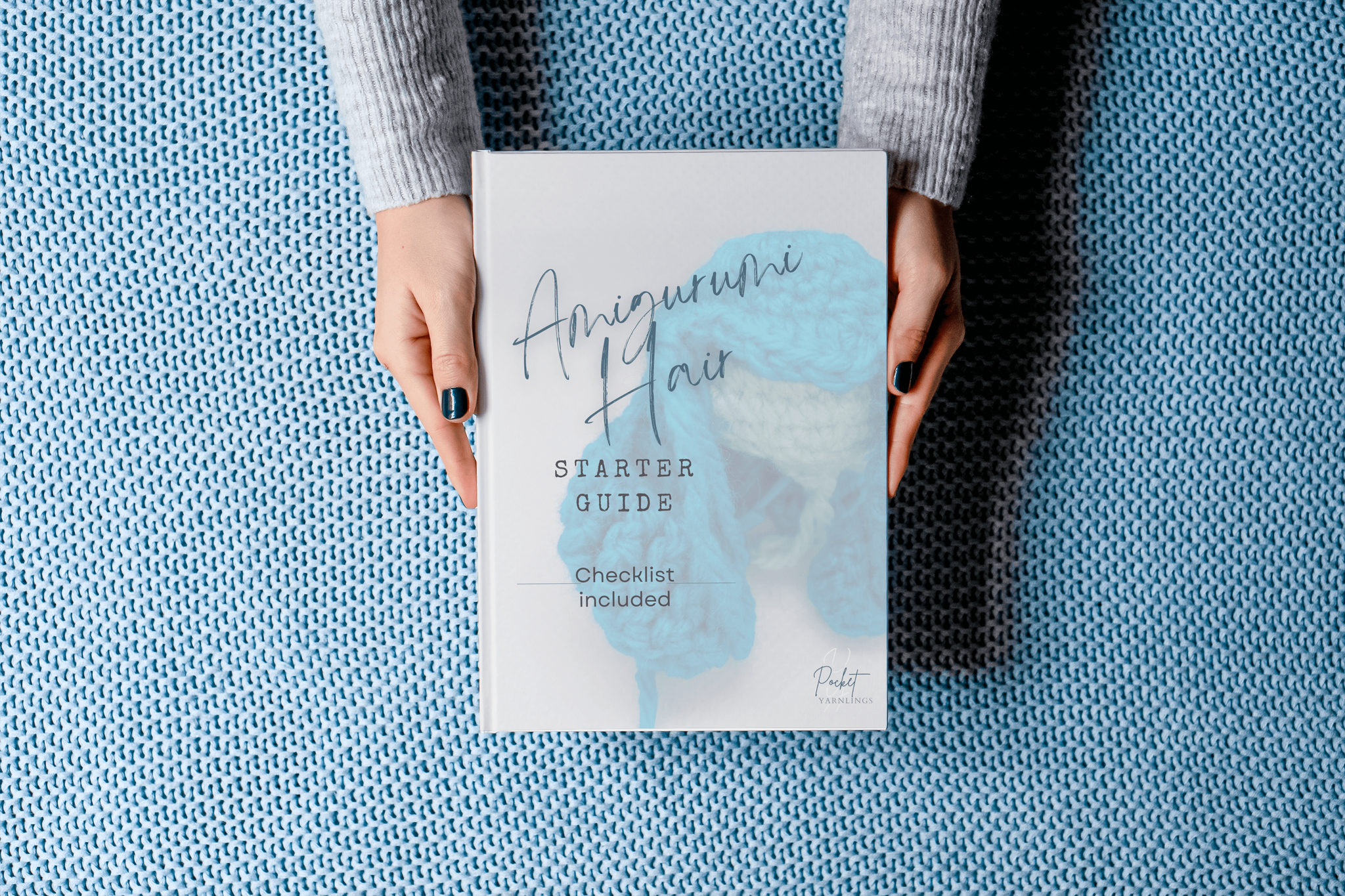7 Techniques for Making Amigurumi Hair
There are several techniques I like to use to make amigurumi hair and they involve different methods to create different effects. In this post, I will be going through the various techniques involved and how they look eventually at the end.
Techniques for making Amigurumi Hair:
1) Loop and hook
This creates a flowing hair effect, but can be quite tedious and time-consuming as you would have to hook them on individually over the head! Using this technique is great for making hair of any length as long as you adjust each strand of yarn hooked onto the head.
You can use this to make straight or wavy hair. You can even make curly hair by curling the yarn around a straw and using a heat gun to hold the curls!
2) Sewing down
As for this method, it is relatively fast using yarn and a darning needle. This method can create various different hairlines, depending on the direction you choose to sew down. It can turn out horizontal, vertical or even diagonal. It is also relatively less time-consuming and great for making shorter hairstyles.
3) Loop stitch
Using loops on the head creates a nice curly and somewhat messy effect over the head. Though this method is is generally limited to shorter hairstyles.
It creates a great tousled messy head appearance which can turn out quite nice and textured. It also generally consumes much less yarn than some of the other methods.
Free Amigurumi Hair Starter Guide
Click here to get the free checklist with the 7 steps to deciding the right hair for your next amigurumi doll! And some hair patterns to try! Click on image on left to grab it!
5) Direct crochet
This method involves crocheting directly onto the head in a round configuration. It also similarly creates a great messy short curly hair appearance but appears much denser than the loop stitch.
Side tip: I always use this method for the feathers and fur for my animal amigurumi too. No sewing required is yet another advantage!
4) Chain loop fringe
The chain loop involves making a lot of separate chains as strands of hair and is great for shoulder-length to long hair. This method is great or making straight or wavy hair with a textured look that is different from just yarn strands.
Final result is very dense hair and is great for styling like making braids. The length of the hair is adjustable depending on length of each individual chain.
6) Wig cap
I use this most frequently as it is the most versatile. Basically you can crochet on straight or curly or wavy hair depending on the crochet methods you choose to use (I will cover this in another blog post!).
Also, it is highly reproducible, meaning if you follow the pattern, the hair will always turn out the same. This method I find is also the fastest, no fiddling with individual strands!
7) Combination of above
Try out all the various methods above in combination to get different detailing and outcome for the amigurumi hairstyles!
All the various 7 techniques I have listed above are covered in great detail in my 60-pageD ebook titled ‘A comprehensive guide to amigurumi hairstyles’.
For each of the 7 methods, I have a pictorial step-by-step guide on how to achieve it and how they look like at the end in various examples!
If you want to get started on your amigurumi hairstyling journey and don’t know where to start, just grab my free starter guide below. I even included a 7-step checklist on how to decide the hair for your next amigurumi doll and also some bite-sized hair patterns inside. Grab it below completely for free!
Free Amigurumi Hair Starter Guide
Click here to get the free checklist with the 7 steps to deciding the right hair for your next amigurumi doll! And some hair patterns to try! Click on image on left to grab it!
What’s Next
🧵 How to Crochet Dolls: 7 Key Techniques for Body, Head, Hair & Clothes »
Your complete parent guide—learn all the core components of doll-making in one place.
💇♀️ 24 Creative Ways on How to Crochet Doll Amigurumi Hair »
Explore fun and unique hair ideas to style your dolls with curls, waves, fringes, and more.
👗 6 Super Easy Ways to Crochet Doll Clothes for Amigurumi (Including Dresses!) »
Explore quick methods for making seamless, attached, or removable doll outfits.








